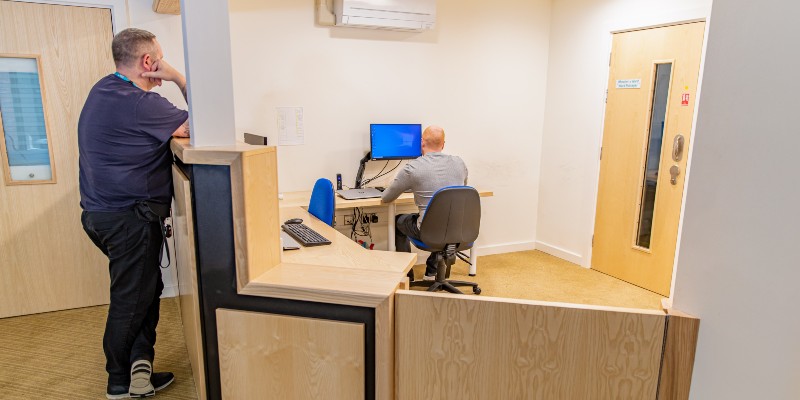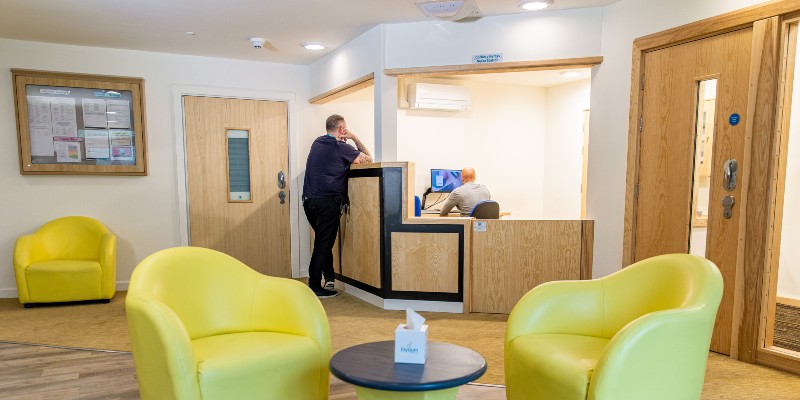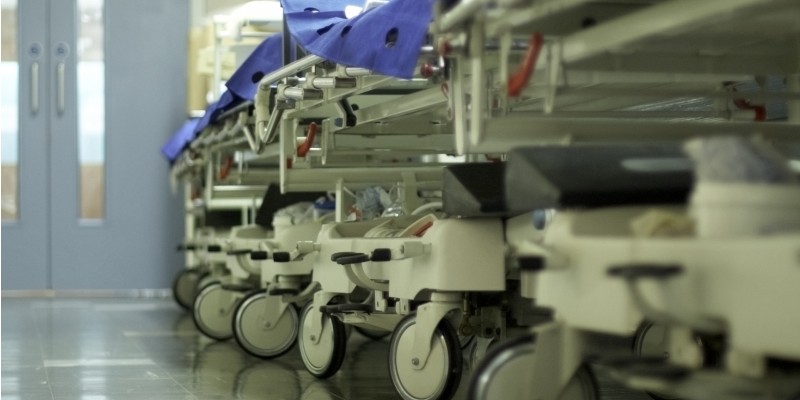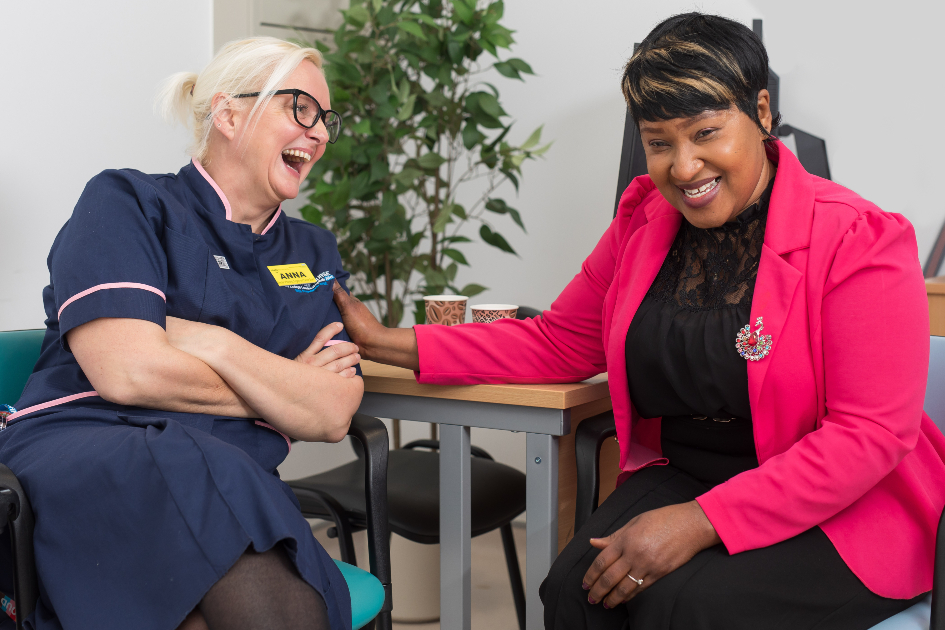News
Knocking down walls to enhance patient experience
How removing the walls of one nursing station in a south Wales hospital has transformed how patients engage with nursing staff.

Connect with us:
Jessica Jones is an experienced registered mental health nurse (RMN) and has been a qualified nurse for over 30 years. She has worked in the NHS, independent sector and overseas, holding senior positions on surgical wards, acute mental health wards and in home treatment and community mental health teams. For the last 15 years Jessica has worked in forensic low, medium and locked rehabilitation settings and she currently holds a registered manager position at Aberbeeg Hospital in south Wales.
Jessica believes the environment we create for our service users can have a positive impact on their wellbeing and recovery. So, with the support of Elysium Healthcare, Jessica and her colleagues sought approval from HIW and NHS Wales to change the traditional ward office to an open plan nursing station on the newly built Taliesin Ward at Aberbeeg Hospital and undertook a project to evaluate the safety of the station and examine the effect on patient experience.
The station has a low stable door, no windows, and is open to the ward communal area. Desktop computers are replaced with laptops, which can be taken into the clinical area to work collaboratively with patients. Security and restricted items are stored in a separate location. Displays of relevant sensitive information are dispersed elsewhere or online where possible.
A patient on Taliesin Ward at Aberbeeg Hospital said: “I have been on a few medium secure wards in my time. When I first walked onto the ward and saw the open plan nursing station, it made me feel a lot more relaxed. The whole ward felt less threatening to me; less hostile. I would get so fed up and irritated by having to knock on the nurses’ office door constantly for every little thing I needed. Now there is no door to knock on, I can just talk to the nurse normally. It’s all a lot more relaxed being here because of the way the ward office is so open. I like it.”
A health care worker at Aberbeeg Hospital said: “When I first heard about the open plan nursing station, I was sceptical. I have got over seven years’ experience in secure services and thought it would be too risky. I have worked on Taliesin Ward for nearly a year now. I think the nursing station works well and there have not been any incidences of violence, aggression or breaches in security associated with the design. The communication with the patients is better; in fact, when I go and work on the other ward with the more traditional, closed off office I just want to rip the walls down. I much prefer working with this design. I am convinced the patients are more relaxed and engaged with staff.”

Jenny Kirkland, Group Director of Nursing at Elysium Healthcare said: “I am incredibly pleased to celebrate the innovative approach that Jess and the team are championing.
“Challenging the traditional closed office design, traditionally deemed necessary for security and procedural reasons, is no mean feat. The absence of Perspex windows and collaborative use of laptops fosters an atmosphere of trust and support, showcasing the team’s commitment to partnership working, patient wellbeing and positive patient and staff experience. Safety remains a priority and requires risk assessment and the storage of security items separately.
“Anecdotal evidence from members of staff and patients emphasises the success – the patient's experience reflects a notable shift from irritation to appreciation, highlighting the importance of a welcoming environment in the recovery process, with staff reporting the improved communication between staff and patients as a significant benefit, promoting an environment where patients feel more relaxed and engaged. The incorporation of an open nursing station design in a medium secure ward is a unique approach in the UK.
“The potential for replicating the positive patient experiences reported in general psychiatric settings suggests a transformative future for secure units. If this innovative design continues to demonstrate positive outcomes without compromising safety, it could redefine the standard for medium secure ward configurations, emphasising the importance of openness, trust, and collaborative care in mental health settings.”











